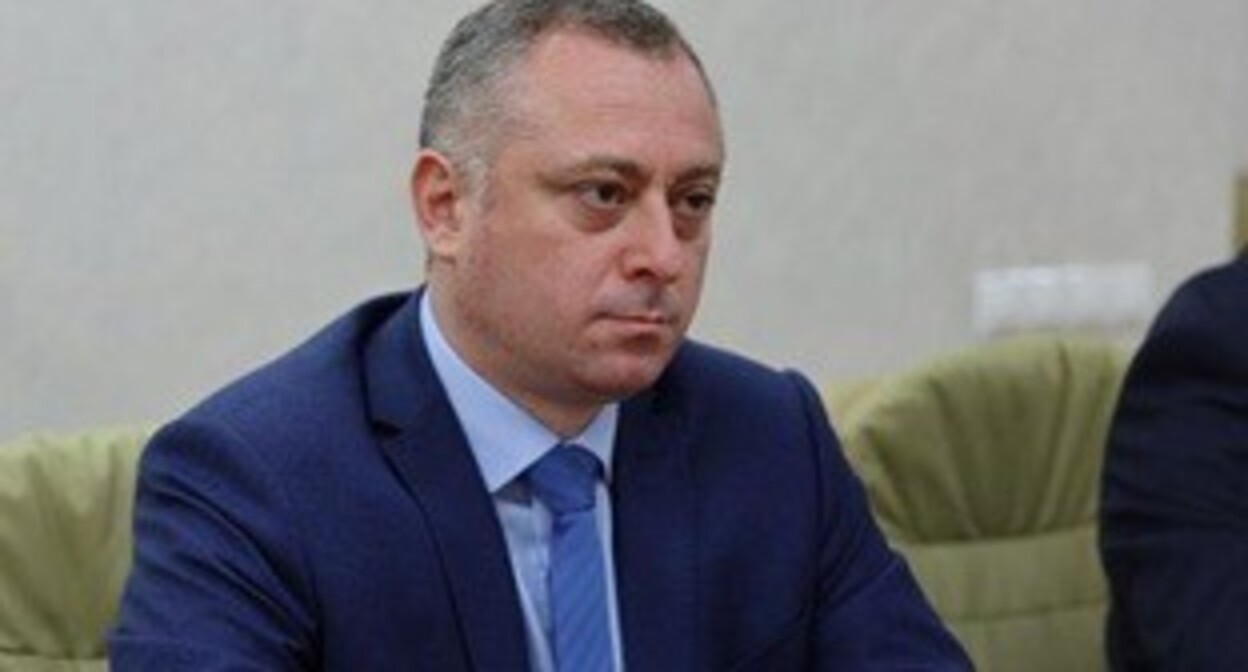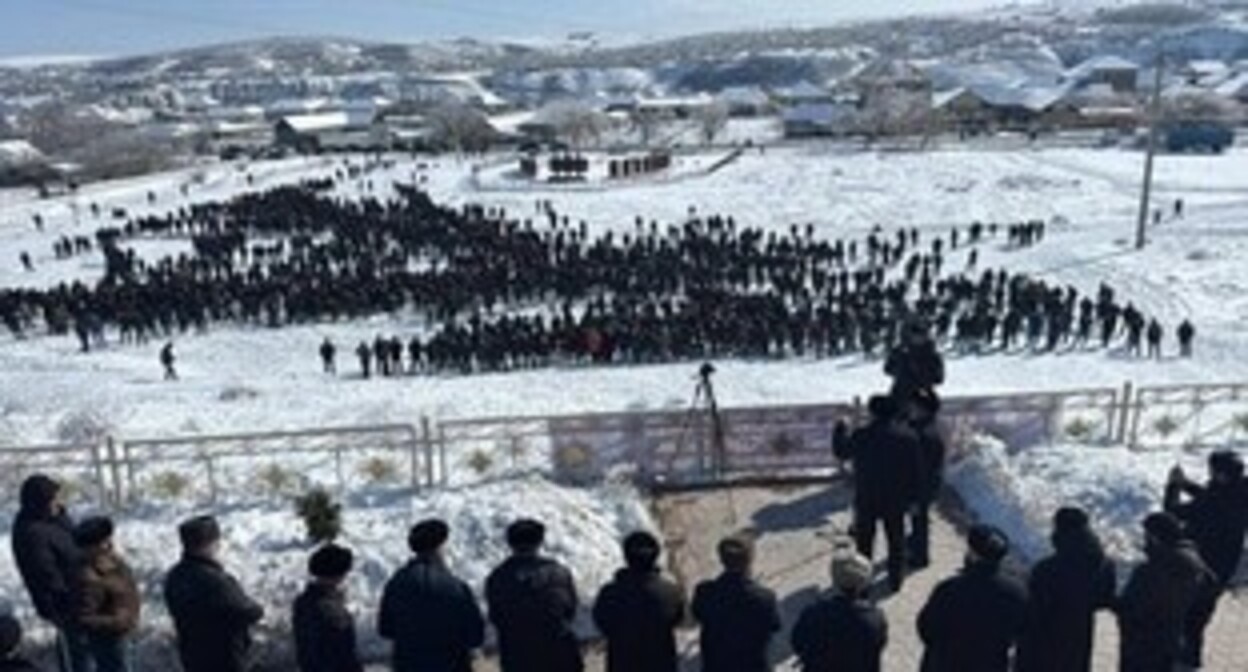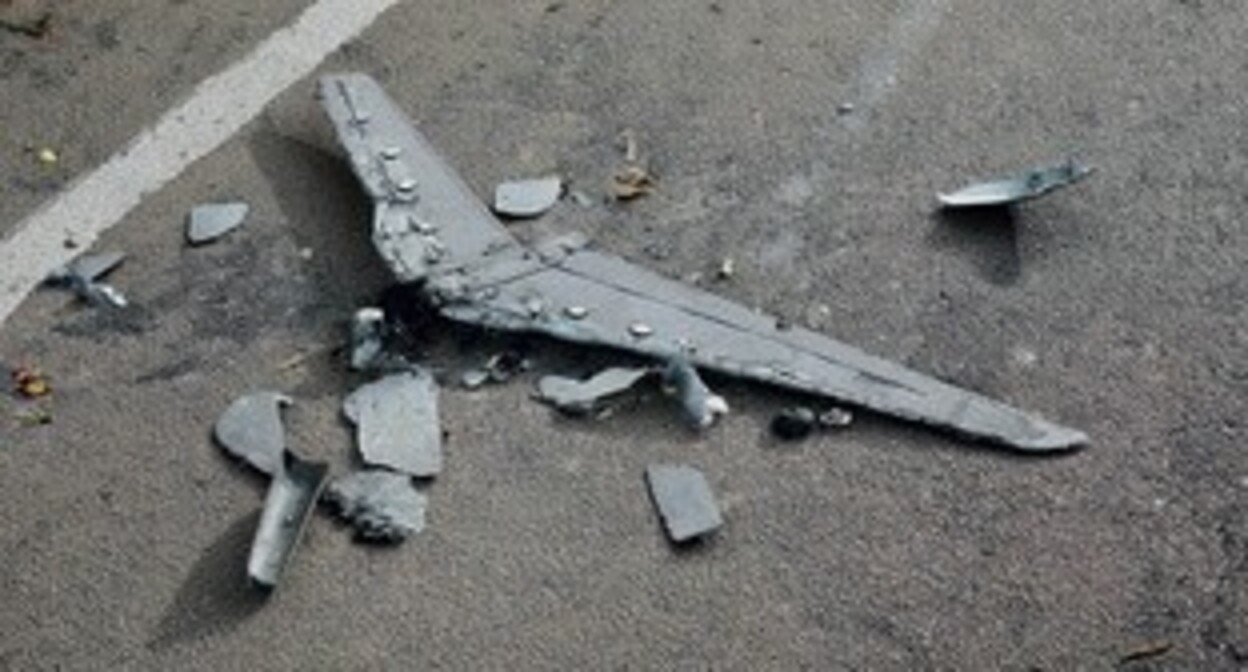Week in the Caucasus: review of main events of May 29-June 4, 2023
Conflict between Kadyrov’s subordinates and Yevgeny Prigozhin, persecution of pacifists and activists in Southern Russia, rally in Abkhazia, drones in Kuban, conflict between Armenia and Azerbaijan, struggle of Alizamin Salaev, and official data on the natives of Southern Russia who perished in Ukraine, – see the review of these and other events in the Caucasus during the week of May 29-June 4, 2023, prepared by the “Caucasian Knot”.
Conflict between Kadyrov’s subordinates and Yevgeny Prigozhin
On May 31, Ramzan Kadyrov announced that Chechen military units had been re-deployed to the Donetsk People’s Republic (DPR) to take part in assaults on settlements. Yevgeny Prigozhin, a founder of the “Wagner” private military company (PMC), stated that he did not know about the plans for the location of the Chechen military units. Magomed Daudov, the chair of the Chechen Parliament, emphasized that Yevgeny Prigozhin was not supposed to know the information about the location of the Chechen military units.
Yevgeny Prigozhin should not forget “thanks to whom” he owns a private military company with planes, helicopters, and other types of weapons, Magomed Daudov has emphasized. Dmitry Utkin, a commander of the “Wagner” PMC with the codename “Wagner”, has declared his readiness to talk to Magomed Daudov as “man to man.” According to Dmitry Utkin, he knows Yevgeny Prigozhin since the first and second Chechen military campaigns.
On June 3, Yevgeny Prigozhin announced that he had settled his conflict with the top-ranking officials of Chechnya. Meanwhile, the founder of the “Wagner” PMC hinted at the involvement of his opponents in the murder of Sulim Yamadaev, the former commander of the “Vostok” (East) Chechen battalion. Ramzan Kadyrov himself ignored the dispute and called for announcement of martial law in Russia.
Persecution of pacifists and activists in Southern Russia
On May 31, it became known that the Trusovsky District Court fined Viktor Lomakin, a resident of Astrakhan, recognizing that his comments on the social media about mobilization had discredited the Russian Armed Forces. The Akhtubinsky District Court united three cases against Astrakhan resident Yevgeny Katyshevtsev into one proceeding. The man was fined for his posts on the page in the “Odnoklassniki” social media outlet.
The Novocherkassk City Court imposed a fine of 800,000 roubles on doctor Ivan Churinov for damaging banners with portraits of Russian soldiers and officers. The Sholokhovsky District Court of the Rostov Region sentenced Oleg Moiseev, a store worker, to a fine for a photo with a slogan in support of Ukraine. The Georgievsk City Court in the Stavropol Territory fined local resident Anastasia Artemieva. According to the investigators’ version, the woman posted a video on her YouTube channel in which Russian President Vladimir Putin and the letter Z were drawn on a person’s leg.
In Astrakhan, law enforcers drew up a protocol on discrediting the Russian Armed Forces against local resident Alexander Grebenschikov. The Kirovsky Court of Makhachkala returned to the police a case against Timur Talkanov, accused of discrediting the Russian Armed Forces. The case was again submitted to the court for consideration after the deficiencies had been eliminated. The protocol on discrediting the Russian Armed Forces was drawn up against Sergei Detochkin, a resident of the Krasnodar Territory.
Rally in Abkhazia
On May 30, in Sukhumi, participants of a rally demanded the resignation of the republic’s government, and supporters of Aslan Bzhaniya gathered in front of the presidential administration. Oppositionists went to the president with a resolution of the rally, but he refused to consider their demands.
The protesters called on the president to create a reform council with the participation of all social forces and cancel orders to legalize trade with Georgia and increase electricity tariffs.
The authorities of Abkhazia took unprecedented security measures ahead of the rally, which brought together about 3500 people. “This is a lot on the scale of Abkhazia. The authorities, according to their own assessment, managed to gather no more than 1000 people, including the police, for the counter-rally,” explained Izida Chania, an editor of the newspaper “Nuzhnaya Gazeta”.
Drones in Kuban
On May 28, the Kuban operational headquarters reported that several unidentified drones were shot down while trying to approach an oil refinery in the village of Ilsky. On May 31, “a drone allegedly fell” on the territory of a plant, the Kuban operational headquarters reported. As a result, the drone crashed, no fire occurred, and there were no casualties.
On the same day, a fuel oil distillation unit caught fire at the Afipsky oil refinery. According to the preliminary information, the incident took place as a result of a drone attack.
Conflict between Azerbaijan and Armenia
On May 28, Azerbaijani President Ilham Aliev declared that residents of Nagorno-Karabakh must obey the laws of Azerbaijan and that the troops are ready to conduct a special operation to restore the rule of law in the mentioned territory. The president and the parliament of Nagorno-Karabakh are elected by the people, and the demand of the president of Azerbaijan is illegal, the press secretary of the president of the unrecognized republic states. According to the Azerbaijani Ministry of Foreign Affairs (MFA), the Ilham Aliev’s statement was distorted in Armenia, and the protection of sovereignty and territorial integrity is the sovereign right of Azerbaijan. The words of Ilham Aliev about the possibility of a special operation in Karabakh cast doubt on the statements on mutual recognition of the territorial integrity of Armenia and Azerbaijan and violate the agreements reached, the Armenian Ministry of Foreign Affairs emphasizes.
The leaders of the two countries met twice during the week. On June 1, Chisinau hosted a meeting between European Council President Charles Michel, Azerbaijani President Ilham Aliev, Armenian Prime Minister Nikol Pashinyan, French President Emmanuel Macron, and German Chancellor Olaf Scholz. The issues of delimitation of the border and a peace treaty between Baku and Yerevan, security and rights of residents of Nagorno-Karabakh, and unblocking of communications in the region have been discussed, President of the European Council Charles Michel reports. According to him, the meeting was productive.
On June 3, the leaders attended the inauguration ceremony of Turkish President Recep Tayyip Erdogan. Nikol Pashinyan became the first Armenian leader within 15 years to visit Turkey. Turkey and Armenia do not maintain diplomatic relations. The discord among the countries is related to the conflict over Nagorno-Karabakh, in which Turkey supports Azerbaijan. The disagreement is also being provoked by the historical assessment of the massacres of Armenians in 1915 in the Ottoman Empire, which Yerevan considers the Armenian Genocide.
Struggle of Alizamin Salaev
Azerbaijani oppositionist Alizamin Salaev has been charged with assaulting a passer-by with a knife. The oppositionist claims to have been attacked himself. On February 7, he went on a hunger strike in protest, during which he twice fell into a coma. On May 22, the court sentenced Alizamin Salaev to four years of imprisonment. On May 26, it became known that Alizamin Salaev had lost the ability to move, and on May 31, he announced that he would go on a dry hunger strike if he was not released within a week.
Alizamin Salaev, the head of the regional organization of the Popular Front Party of Azerbaijan (PFPA), was arrested on the charge of disorderly conduct with the use of violence and weapons. He faced up to five years of imprisonment. According to an advocate, witnesses for the prosecution did not confirm the Alizamin Salaev’s guilt, and there is no reliable evidence of it.
On May 1, on the 115th day, Alizamin Salaev stopped his hunger strike “after top-ranking officials from the Penitentiary Service promised him that his appeal against the sentence would be considered without bias,” reported Djeikhun Novruzov, the chair of the PFPA’s Sabail district unit.
Official data on natives of Southern Russia perished in Ukraine
By June 4, the authorities and the law enforcement bodies reported about at least 2034 residents of Southern Russia perished in Ukraine, including 1101 residents of the North-Caucasian Federal District (NCFD) and 933 residents of the Southern Federal District (SFD).
In Dagestan, the authorities reported about 513 local residents perished in Ukraine, in the Volgograd Region – 363, in the Rostov Region – 227, in North Ossetia – 184, in the Stavropol Territory – 154, in the Astrakhan Region – 145, in Kuban – 146, in Chechnya – 102, in Kabardino-Balkaria – 91, in Ingushetia – 36, in Adygea – 28, in Karachay-Cherkessia – 24, and in Kalmykia – 21.
This article was originally published on the Russian page of 24/7 Internet agency ‘Caucasian Knot’ on June 5, 2023 at 08:27 am MSK. To access the full text of the article, click here.








![Tumso Abdurakhmanov. Screenshot from video posted by Abu-Saddam Shishani [LIVE] http://www.youtube.com/watch?v=mIR3s7AB0Uw Tumso Abdurakhmanov. Screenshot from video posted by Abu-Saddam Shishani [LIVE] http://www.youtube.com/watch?v=mIR3s7AB0Uw](/system/uploads/article_image/image/0001/18460/main_image_Tumso.jpg)